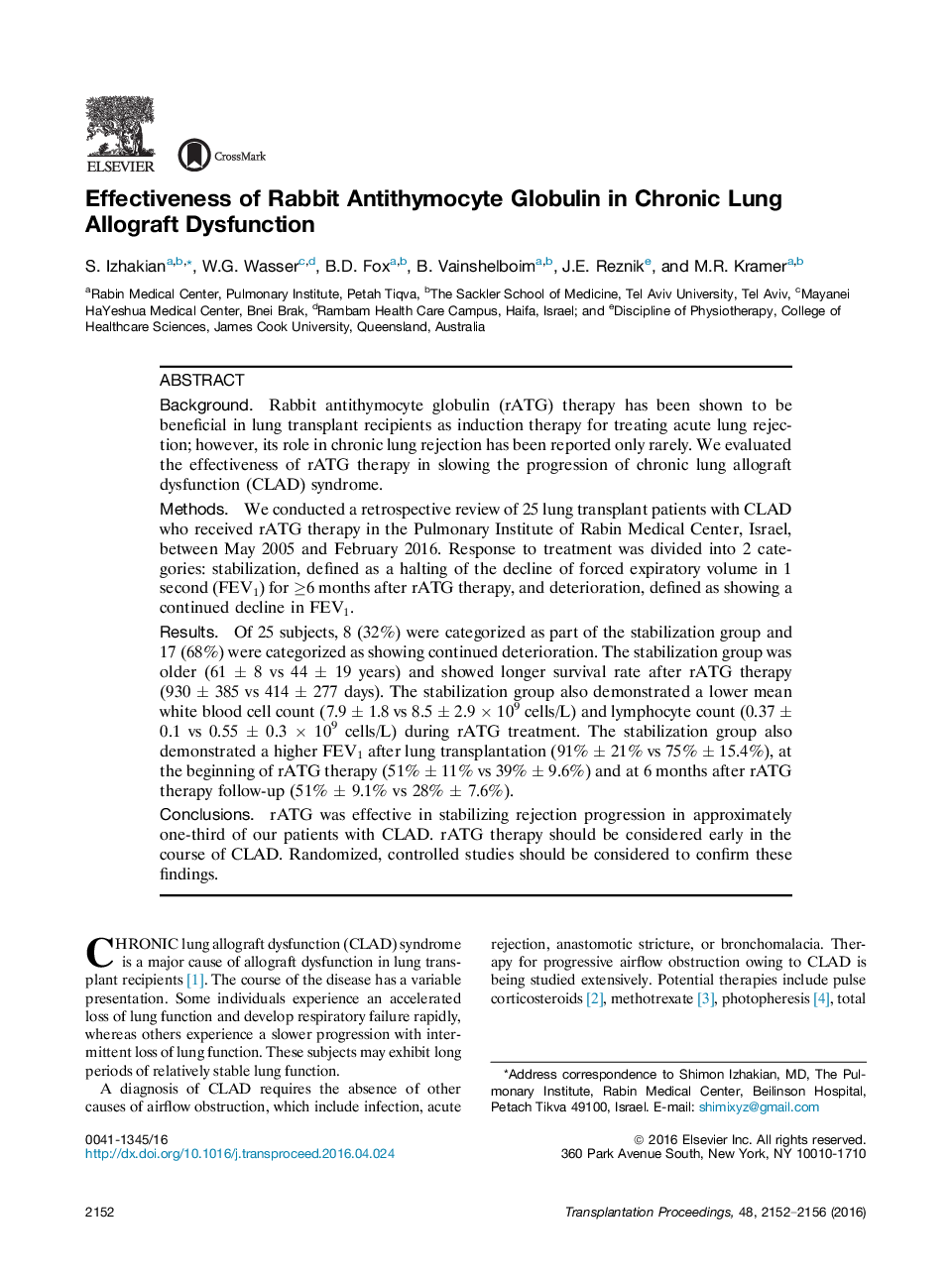| Article ID | Journal | Published Year | Pages | File Type |
|---|---|---|---|---|
| 5729162 | Transplantation Proceedings | 2016 | 5 Pages |
â¢Evaluation of the role of rATG therapy in chronic lung allograft dysfunction syndrome.â¢rATG is effective in stabilizing rejection progression in one-third of treated patients.â¢rATG therapy may be useful treatment option in early phase of chronic lung rejection.
BackgroundRabbit antithymocyte globulin (rATG) therapy has been shown to be beneficial in lung transplant recipients as induction therapy for treating acute lung rejection; however, its role in chronic lung rejection has been reported only rarely. We evaluated the effectiveness of rATG therapy in slowing the progression of chronic lung allograft dysfunction (CLAD) syndrome.MethodsWe conducted a retrospective review of 25 lung transplant patients with CLAD who received rATG therapy in the Pulmonary Institute of Rabin Medical Center, Israel, between May 2005 and February 2016. Response to treatment was divided into 2 categories: stabilization, defined as a halting of the decline of forced expiratory volume in 1 second (FEV1) for â¥6 months after rATG therapy, and deterioration, defined as showing a continued decline in FEV1.ResultsOf 25 subjects, 8 (32%) were categorized as part of the stabilization group and 17 (68%) were categorized as showing continued deterioration. The stabilization group was older (61 ± 8 vs 44 ± 19 years) and showed longer survival rate after rATG therapy (930 ± 385 vs 414 ± 277 days). The stabilization group also demonstrated a lower mean white blood cell count (7.9 ± 1.8 vs 8.5 ± 2.9 à 109 cells/L) and lymphocyte count (0.37 ± 0.1 vs 0.55 ± 0.3 à 109 cells/L) during rATG treatment. The stabilization group also demonstrated a higher FEV1 after lung transplantation (91% ± 21% vs 75% ± 15.4%), at the beginning of rATG therapy (51% ± 11% vs 39% ± 9.6%) and at 6 months after rATG therapy follow-up (51% ± 9.1% vs 28% ± 7.6%).ConclusionsrATG was effective in stabilizing rejection progression in approximately one-third of our patients with CLAD. rATG therapy should be considered early in the course of CLAD. Randomized, controlled studies should be considered to confirm these findings.
